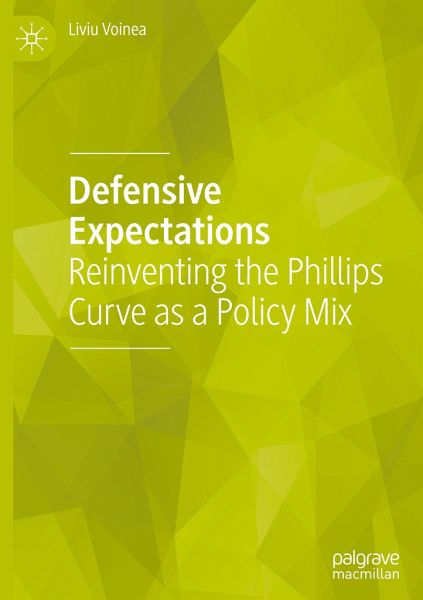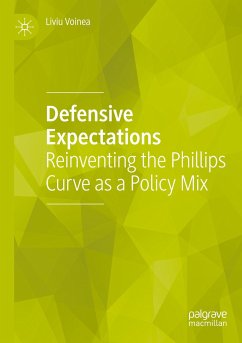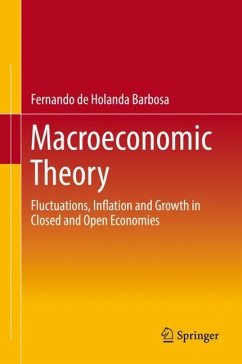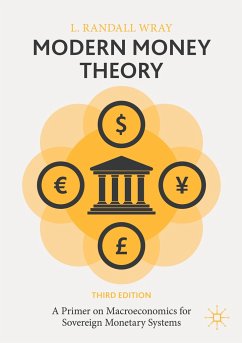
Defensive Expectations
Reinventing the Phillips Curve as a Policy Mix
Versandkostenfrei!
Versandfertig in 6-10 Tagen
65,99 €
inkl. MwSt.
Weitere Ausgaben:

PAYBACK Punkte
33 °P sammeln!
This book explains why inflation remains subdued after recessions, based on three revolutionary concepts: defensive expectations, compensatory savings, and cumulative wage gap. When income falls, consumption falls, and savings rise, as people rebuild their past wealth. Households will not spend more until they fully recover what they lost. The revised Phillips Curve explains that current inflation depends on the cumulative difference between current income and past income.This new theory is tested and validated by data for US since 1960 to date and for 35 OECD countries from 1990 to date. A nu...
This book explains why inflation remains subdued after recessions, based on three revolutionary concepts: defensive expectations, compensatory savings, and cumulative wage gap. When income falls, consumption falls, and savings rise, as people rebuild their past wealth. Households will not spend more until they fully recover what they lost. The revised Phillips Curve explains that current inflation depends on the cumulative difference between current income and past income.
This new theory is tested and validated by data for US since 1960 to date and for 35 OECD countries from 1990 to date. A number of policy implications are derived from these results. The book calls for an optimal policy mix between monetary policy and fiscal policy; it also discusses the coronavirus crisis as an extreme case of defensive expectations.
This new theory is tested and validated by data for US since 1960 to date and for 35 OECD countries from 1990 to date. A number of policy implications are derived from these results. The book calls for an optimal policy mix between monetary policy and fiscal policy; it also discusses the coronavirus crisis as an extreme case of defensive expectations.














